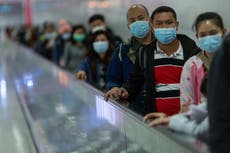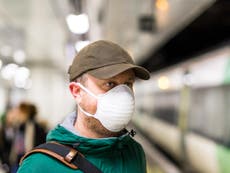Parents, don't sugarcoat coronavirus – children must know the truth
It's possible to make an informed decision about which facts you wish to highlight, and empower children to make sense of the situation for themselves
As the world heads towards a coronavirus pandemic, mass panic is setting in. With 24-hour news reporting continually on the rising number of cases, ascertaining exactly how worried we should be has become impossible – particularly for children.
As editor of a children’s newspaper, I hear from many 8-14-year-olds feeling worried about the situation. They have many questions – and look to adults for answers. But how best to deliver them when we ourselves are unsure what we are dealing with?
Firstly, we must be as honest as we can. I’ve heard of some schools telling children not to talk about coronavirus for fear of spreading panic. This is utterly misguided: without the facts, children will fill in the gaps themselves, often spreading misinformation, such as about how the virus can be transmitted or who may or may not have it.
Of course, as a parent, you know sensitive your child, is and will make an informed decision about which facts you wish to highlight. But the important thing is that you equip children with the information to make sense of this situation for themselves.
Importantly, being honest doesn’t mean focusing on the negative, as the media tends to. The death toll is rising, as are the number of cases – but these are still low figures in context of the population. How about looking at the number of people who have recovered from the virus and the number of people who will only get very mild symptoms (four out of five)?
It’s about presenting the facts and figures as they are – which in the case of coronavirus are quite reassuring when you take time to look at them.
Firstly, at the time of writing, just under 81,000 cases of coronavirus have been confirmed, and around 3,200 deaths. In the UK we have 383 confirmed cases, and 6 deaths. To put this in context, the normal flu has killed 84 people in the UK and over 16,000 in the United States so far this winter.
Secondly, there are effective preventative measures we can all take to limit our risk of catching the virus. Thorough handwashing, throwing tissues in the bin and avoiding people who are ill – we should be empowering children with the information they need to protect themselves.
Thirdly, the fact remains that we are never going to escape sensationalist headlines. TV news have hours to fill and newspapers rely on dramatic front pages to sell copies. We should bear in mind that facts rarely make the most interesting news story, which explains why we are not seeing them made so prominent in the media.
But rather than restricting children’s access to the media, the coronavirus outbreak presents us with an opportunity to encourage our young people to consume it critically: questioning what they read and hear, being unafraid to voice their concerns.
We are facing an unprecedented situation that is likely to get worse before it gets better. But as adults, we need to set an example to our children by remaining calm and providing them with a balanced view of events – and empowering them to rise above mass panic.
Nicky Cox is editor of First News, the UK's newspaper for kids.






Join our commenting forum
Join thought-provoking conversations, follow other Independent readers and see their replies